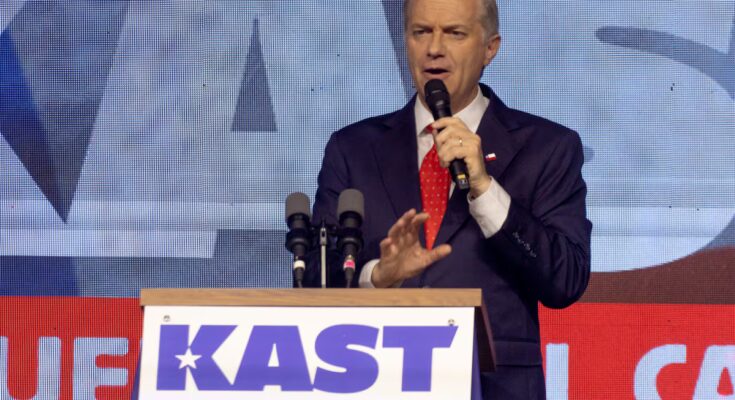The first presidential round in Chile confirmed an increasingly visible trend: the growth of the far right. Although we must not forget that the most voted candidate was the communist candidate Jeannette Jara. But the background – and the merit – is clear: the consolidation of the far right.
Which, far from being a “passing” episode, is spreading throughout Latin America. The same way as what happens in Europe. The result of the Chilean data speaks clearly: the country is trapped between increasingly rigid poles, an unequivocal symptom of a polarization imported, amplified and organized on a global scale.
Coordinated “ecosystem”.
As Baltasar Garzón warned in his latest articles, the international far right no longer advances as a sum of isolated actors, but as a coordinated ecosystem. With common strategies, shared resources and a discourse that circulates without borders. Vox – the European epicenter of this reactionary network – has perfected a script: transform politics into a permanent culture war, erode democratic consensus, demonize the opponent and exploit social resentment as electoral fuel. That script is replicated, with local adaptations, in various Latin American countries.
The Peruvian case is particularly worrying. The elections arrive only in the first half of 2026, when the “gangrenous” collapse of the Corrupt Pact that governed the country emerges. There, the mayor of Lima, Rafael López Aliaga, appears, at first glance, like a folkloric, almost cartoonish character (Porky goes by the name).
But beneath that jarring shell, this Porky operates with a logic similar to that promoted by Vox in Spain: systematic defamation, creation of internal enemies, political use of fear, authoritarian moralism and contempt for democratic institutions. His favorite resource – accusing anyone who disagrees with him as a “terrorist” – is a crude version of the “antipatriotism” with which Vox stigmatizes its opponents.
And something else, calling with impunity for murder against people he doesn’t like: “We must kill him!”, a public appeal addressed to the eminent investigative journalist Gustavo Gorriti, one of the most prominent journalists in Latin America. And he has just received the 2025 World Press Freedom Hero Award awarded by the International Press Institute (IPI) and International Media Support (IMS). He “must be charged”… a so-called criminal who, incredibly, is “normalized” without the “pig” being prosecuted.
The similarities are not coincidental. The global far right has learned that eccentric, even grotesque, leadership can be functional: it shifts the debate, fractures the political center and “normalizes” verbal violence as part of public life.
López Aliaga is, in this sense, the Peruvian version of this growing international trend. And its impact could be decisive in the Peruvian presidential elections of April 2026.
Latin American democracies: threatened
The risk is twofold.
First, because Peru enters the 2026 electoral process with weakened and broken institutions. Three years subjected to the Corrupt Government Pact between a government and Congress that were not only inefficient, but also very corrupt. In such a context, “imported” polarization – the political one made up of shouting, insults, threats, organized lies – can become highly flammable.
Secondly, because this far right does not seek to govern by consensus. Nothing to do with this. Visible speech and behavior that impose an emotional framework: turning politics into an identity plebiscite. Where “the country” belongs to “them”. And the others are “internal enemies”. This is the mechanism. Which, as Garzón recalls, led pro-European and democratic parties to lose ground compared to openly reactionary formations.
Chile today is an advanced mirror of what can happen in Peru: a divided electorate, a weakened center and extreme forces contesting the country’s moral control. And, behind it, the shadow of global coordination that pushes in the same direction: breaking the balance, blowing up bridges, governing with anger.
Latin American democracies cannot afford to ignore this wave. The danger is no longer just the arrival of “radicals” in power, but the profound transformation of the public debate into a battle of irreconcilable identities. It is about defending, without ambiguity, democratic dialogue against the fanaticism that seeks to replace it.
Because if Chile, Peru and the European experience show anything at the same time, it is that the far right does not thrive through sudden changes, but through progressive normalization. And every day that this project advances, the possibility of rebuilding a political space in which plurality, respect and truth move a little further away increases.


